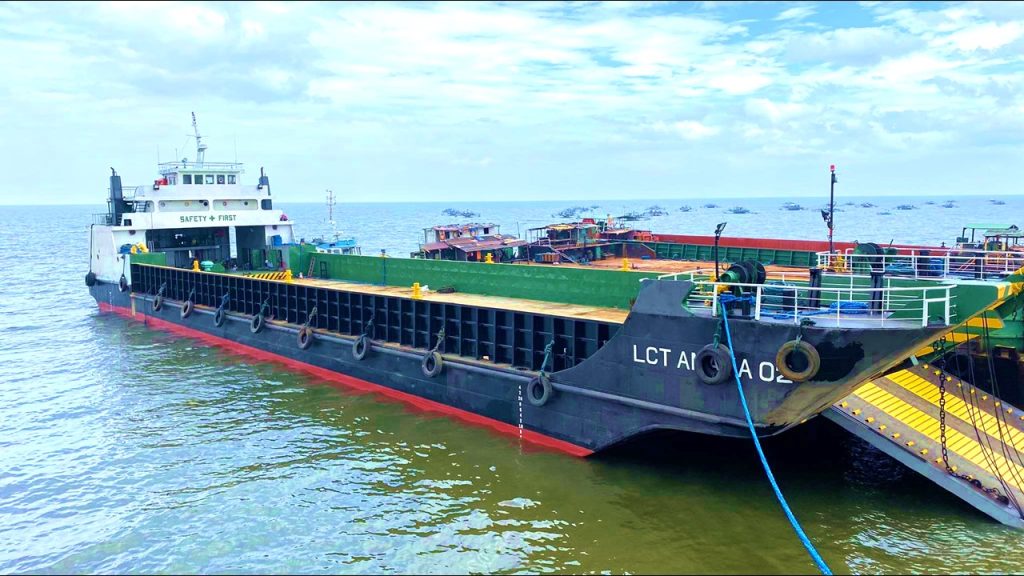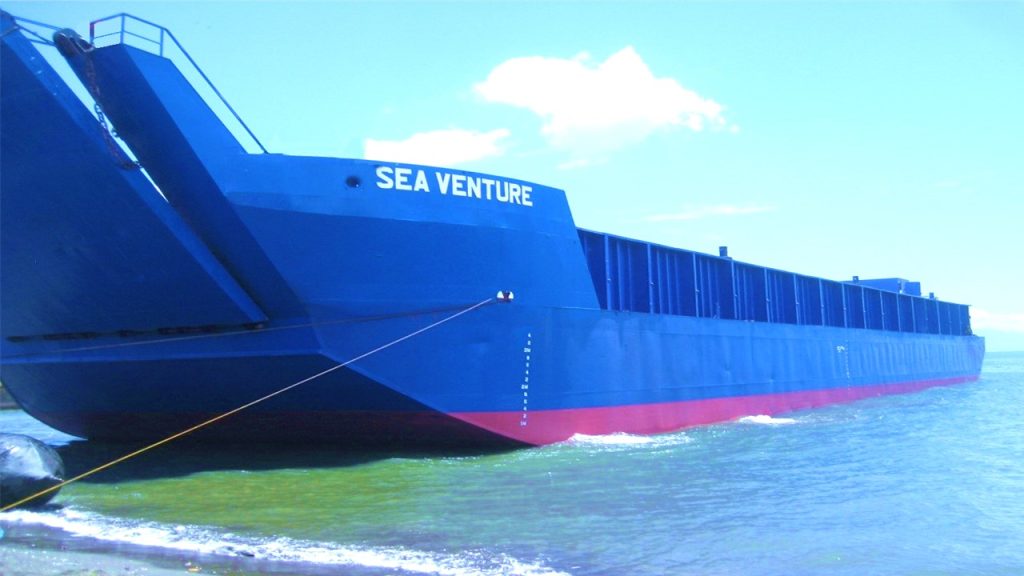Ship chartering in the Philippines is a vital aspect of the maritime industry, facilitating the transportation of goods and people across Luzon, Visayas, and Mindanao. With its extensive coastline and numerous islands, this Southeast Asian nation heavily relies on various types of ship chartering to meet its domestic and international trade demands. From voyage charters that cater to one-off trips to time charters that provide vessels for a specific duration and demise charters that enable full control over a ship’s operations, understanding these different modes of chartering is crucial for businesses and individuals navigating the waters of the Philippines’ shipping industry.
Click here to view our ship chartering in the Philippines.
Overview of ship chartering in the Philippines
Ship chartering in the Philippines is a vital aspect of the country’s maritime industry. Being an archipelago with more than 7,000 islands, the Philippines heavily relies on maritime transportation for trade and commerce. Ship chartering provides businesses with the flexibility to transport goods efficiently and securely across different destinations within the country.
One key advantage of ship chartering in the Philippines is the ability to customize and tailor transport solutions according to specific needs. This can range from transporting bulk cargo, such as agricultural products or construction materials, to specialized vessels, like refrigerated ships for perishable goods. In addition, ship chartering allows companies to have greater control over their supply chains as they can determine the most optimal routes and schedules for their shipments.
Furthermore, ship chartering services in the Philippines offer various vessel types suited to different industries. For instance, there are container ships that cater specifically to shipping containers between ports, tanker ships that transport liquid cargoes such as oil or gas, and even roll-on/roll-off (RoRo) vessels designed for easy loading and unloading of vehicles. This diversity of vessel options ensures that businesses can find suitable solutions for their specific shipping requirements.
In conclusion, ship chartering plays a crucial role in supporting trade and commerce in the Philippines by providing flexible transportation solutions tailored to fit business needs. The ability to customize routes and schedules combined with a diverse range of vessel options makes ship chartering an essential service for companies looking to transport goods across this vast archipelago efficiently.
The Philippine waters offer a wide range of opportunities for ship leasing, including voyage charters for single journeys and consecutive voyage charters that cover multiple legs within a defined timeframe.
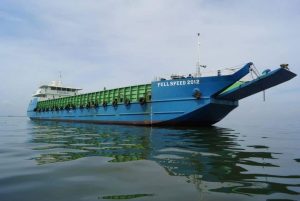
What are the 4 Types of Ship Chartering in the Philippines?
The maritime industry in the Philippines has long played a crucial role in connecting its archipelago of islands. As one of the world’s largest shipbuilding nations, it is no surprise that the country offers a wide range of ship chartering options. Whether for transporting goods, accommodating passengers, or even hosting events at sea, there are four main types of ship chartering available. Each type serves specific purposes and comes with its own unique set of advantages and considerations. We will explore these four types in detail, shedding light on their defining characteristics and their significance within the Philippine maritime landscape.
1. Voyage Charter: Type of Ship Chartering in the Philippines
Voyage charter is a type of ship chartering that is commonly used in the Philippines. It involves hiring an entire vessel for a specific voyage or journey rather than just renting space on a pre-determined route. This type of charter gives the charterer more control over the logistics and scheduling of their cargo, as they have the freedom to determine the loading and discharge ports.
One key advantage of voyage chartering in the Philippines is its flexibility. Unlike time charters or bareboat charters, where vessels are hired for a fixed period of time, voyage charters allow for greater adaptability in terms of cargo preferences and destination choices. This can be particularly valuable when dealing with perishable goods or goods that require quick transportation to market.
Another benefit of voyage chartering in the Philippines is cost efficiency. By hiring an entire vessel for a specific journey, shippers can maximize capacity utilization, reducing overall transportation costs per unit. Additionally, with direct control over shipping logistics and operations, charterers can optimize routes and schedules to minimize delays and avoid unnecessary expenses.
In summary, voyage chartering offers unique advantages in ship chartering in the Philippines. Its flexibility allows for tailored cargo arrangements and destination choices while maximizing cost-efficiency through optimized operations. Whether it’s transporting time-sensitive goods or seeking greater control over transportation logistics, voyage charter presents an attractive option for businesses looking to navigate Philippine waters with ease and efficiency.
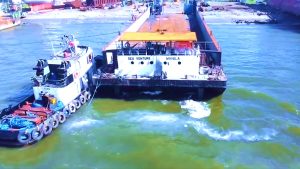
2. Time Charter: Type of Ship Chartering in the Philippines
Time charter is one of the most common types of ship chartering in the Philippines. It involves hiring a vessel for a specific period, often ranging from a few months to several years. Unlike other forms of ship chartering, time charter provides more flexibility and control to the charterer, enabling them to determine where the vessel will operate and control its daily operations.
One key advantage of time charter is that it allows companies to offer efficient and reliable shipping services without having to invest in their own fleet of ships. This is particularly beneficial for businesses in industries such as oil and gas, mining, and agriculture, which require regular transportation of large quantities of goods. By opting for time charter, these companies can focus on their core operations while leaving the logistics and operation of ships in the hands of experienced vessel owners.
Moreover, time charters provide an added level of risk mitigation for both shipowners and charterers. The agreed-upon fixed-rate contract ensures stability amidst fluctuations in market conditions such as fuel prices or demand volatility. This not only helps with budget forecasting but also ensures that both parties have a clear understanding of their financial commitment throughout the duration of the contract.
Time charter offers numerous benefits for companies looking for efficient and reliable shipping services in the Philippines. By allowing flexibility and control over vessel operations without investing heavily in ship ownership, businesses can focus on their core functions while relying on experienced shipowners. Additionally, through fixed-rate agreements, time charters provide stability and risk mitigation amidst uncertain market conditions.
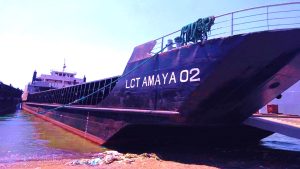
3. Demise Charter: Type of Ship Chartering in the Philippines
Demise charter, also known as bareboat charter, is a popular type of ship chartering in the Philippines. In this arrangement, the shipowner hands over complete control and possession of the vessel to the charterer. Unlike other types of charters, such as time charters or voyage charters, the demise charter does not include any crew or additional services from the shipowner.
One advantage of a demise charter is that it gives the charterer greater flexibility and autonomy in operating and managing the vessel. This can be particularly appealing to companies or individuals who have their own crew and prefer to control all aspects of ship operations. Additionally, demise charters often involve longer-term contracts, allowing for stability and predictability in planning cargo transportation.
However, with great power comes great responsibility. A demise charter places significant obligations on the shoulders of the charterer. The responsibilities for maintenance, repairs, insurance, and port costs lie solely with them. These additional expenses can add up quickly if not properly managed by a knowledgeable party familiar with local regulations and markets.
While demise charters offer more freedom in terms of vessel management and operation in ship chartering scenarios within the Philippines, they also require careful consideration before entering into such an agreement.
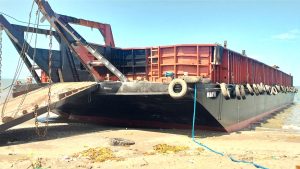
4. Bareboat Charter: Definition and explanation of bareboat chartering
A bareboat charter is a type of ship chartering arrangement where the person or company renting the vessel becomes responsible for all aspects of its operation and management. This means that they not only hire the vessel but also take full control of it, including crewing and provisioning. Essentially, the charterer acts as if they own the vessel for the duration of their agreement.
Bareboat charters offer a unique experience for those seeking more independence and control while exploring the beautiful waters of the Philippines. It allows individuals to become true captains of their own adventure, navigating pristine coastlines at their own pace. The freedom to choose destinations, set sail times, and create personalized itineraries is what makes bareboat charters so appealing to many adventurers. Furthermore, this form of charter also grants access to remote island hideaways and secluded anchorages that may be inaccessible through other means.
One must consider several factors before embarking on a bareboat charter in the Philippines. It requires a certain level of boating experience as well as knowledge about local laws and navigation rules to ensure safety at sea. Hiring a skipper or captain can be an option for those without adequate expertise. Additionally, familiarizing oneself with weather conditions during different seasons is crucial due to potential typhoons in this region—booking during calmer months like March to May can help mitigate such risks.
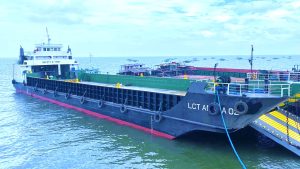
Coasting Trade License for Ship Chartering in the Philippines
Coasting trade licenses play a significant role in ship chartering activities in the Philippines. These licenses grant foreign shipping companies the authority to engage in domestic trade within the country’s territorial waters. The Philippines offers abundant opportunities for ship chartering services to transport goods and commodities efficiently.
Obtaining a coasting trade license is crucial as it ensures compliance with local regulations and provides access to exclusive domestic routes. Moreover, this license allows foreign shipowners to participate in various sectors of the Philippine economy, such as agriculture, manufacturing, and tourism. It also benefits local businesses by encouraging competition and fostering innovation within the maritime industry.
However, it is important to note that securing a coasting trade license requires careful navigation through bureaucratic processes. Applicants must adhere to strict requirements set forth by Philippine authorities, including vessel ownership criteria and proof of financial stability. Additionally, thorough documentation showcasing experience and good standing in international shipping operations is essential for approval.
In conclusion, acquiring a coasting trade license opens doors for ship chartering companies looking to navigate through the Philippine market effectively. The licensing process may be challenging but is certainly worth undertaking due to its potential benefits for both local industries and international enterprises seeking new opportunities in this vibrant island nation’s diverse economic landscape.
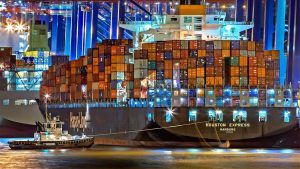
Comparison of the Four Types of Chartering: Key Differences and Considerations for Choosing
When it comes to ship chartering in the Philippines, there are four main types to consider: voyage charter, time charter, demise charter, and bareboat charter. Each type has its unique considerations and benefits depending on the specific requirements and objectives of the charterer.
The voyage charter is ideal for those looking to transport goods from one port to another. It offers flexibility in terms of routes and allows for multiple loading and unloading ports. This type of charter is often preferred by importers/exporters who have specific destinations in mind and want full control over their cargo throughout the journey.
On the other hand, a time charter provides more long-term stability as it involves leasing a vessel for an extended period. This type of arrangement suits industries that require regular transportation of goods or materials between fixed locations. Time charters allow greater predictability when it comes to costs and availability since the chartered vessel remains at the disposal of the charterer for a set duration.
For those seeking even greater control over operations, a demise charter may be worth considering. In this arrangement, not only is the vessel leased but also transferred into full management control of the chartered party. This means that they become responsible for all aspects, including crewing, maintenance, insurance, and operational expenses – effectively making them owner-like during the lease term.
Lastly, bareboat charters provide complete autonomy as they involve renting out a vessel without any crew or provisions. The charterer has full control and responsibility for operating the vessel, including navigation, maintenance, crewing, and provisioning. This type of arrangement is popular among experienced sailors or companies with their own trained crew who prefer to handle all aspects of the voyage themselves.
Bareboat charters offer a unique opportunity for individuals or organizations to have complete autonomy and freedom to explore the seas at their own pace without any external interference.
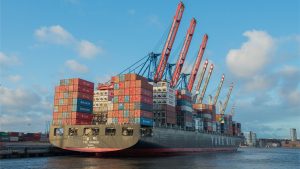
Types of Ships Available for Chartering in the Philippines
When it comes to ship chartering in the Philippines, there are several types of vessels available that can cater to different needs. One such type is LCTs (Landing Craft Tanks), which are versatile and ideal for transporting heavy cargo across various terrains. These ships have a large open deck space that allows for easy loading and unloading of goods, making them popular choices for construction projects and offshore operations.
Another commonly chartered vessel is barges, which are flat-bottomed boats designed for carrying heavy bulk cargo on inland waterways. Barges are often used to transport goods along rivers or canals, enabling efficient trade routes throughout the archipelago. Their relatively low draft and wide decks make them highly adaptable, allowing them to access shallow water areas inaccessible to larger vessels.
Lastly, tugboats play a vital role in ship chartering as they provide essential towing services for larger vessels. With their powerful engines and strong hulls, these compact yet robust ships ensure safe maneuverability and assist in docking or undocking processes. Tugboats also come equipped with firefighting capabilities, adding an extra layer of safety during emergencies.
Ship chartering in the Philippines offers a diverse range of vessels suitable for various purposes. LCTs are versatile workhorses perfect for carrying heavy cargo, while barges excel in navigating rivers and canals with bulky goods. Tugboats complete the fleet by providing efficient towing services while enhancing safety measures along coastal areas.

How to Choose the Right Vessel for Your Ship Chartering Needs in the Philippines?
When it comes to ship chartering, choosing the right vessel is crucial to ensure a successful and smooth voyage. The Philippines offers a wide range of vessels for charter, each with its own unique features and capabilities. One of the key factors to consider in selecting the right vessel is its size. Small vessels such as motorboats are perfect for short-haul trips or exploring secluded islands, while larger vessels like yachts or catamarans offer more space and luxury for longer cruises.
Another important consideration is the purpose of your charter. If you’re looking to host corporate events or private parties onboard, a well-equipped yacht with modern amenities would be ideal. On the other hand, if you plan on indulging in water sports activities such as diving or fishing, a fishing boat or speedboat equipped with the necessary gear would be more suitable. It’s also important to evaluate your budget and compare it with the price range offered by different charter companies in order to strike a balance between cost-effectiveness and comfort.
Additionally, it’s worth considering the crew size and qualifications required for your chosen vessel. Some ships may require a larger crew for navigation and maintenance purposes, while others might only need minimal crew assistance depending on their size and design. Lastly, always check reviews from previous customers regarding their experiences with different charter services in order to choose a reputable company that prioritizes safety and customer satisfaction.
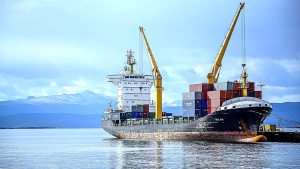
The Process of Chartering a Ship in the Philippines
Chartering a ship in the Philippines is an exhilarating process that allows individuals or businesses to explore the archipelago’s stunning coastal wonders at their own pace. From pristine beaches to secluded coves, there is no shortage of breathtaking destinations waiting to be discovered. However, before embarking on this adventure, it is important to understand the intricacies involved in chartering a ship.
One key aspect of the chartering process in the Philippines is choosing the right vessel for your needs. Whether you are planning a romantic getaway on a luxurious yacht or organizing a diving expedition with friends, there are various types of ships available for charter. From traditional wooden boats to state-of-the-art catamarans equipped with modern amenities, each option offers its unique charm and features.
Once you have selected your ideal ship, it’s time to plan your itinerary. With over 7,000 islands spread across different regions in the Philippines, there are countless possibilities for exploration. Consider incorporating diverse activities into your journey – snorkeling amidst vibrant coral reefs one day and immersing yourself in local cultural experiences the next. This will ensure that you make the most out of your chartered voyage while experiencing all that this captivating country has to offer.
Embarking on a ship charter adventure in the Philippines allows for unparalleled freedom and flexibility when it comes to exploring this tropical paradise. By understanding the intricacies involved in choosing a vessel and crafting an engaging itinerary, you can ensure an unforgettable experience that combines relaxation with thrilling adventures.
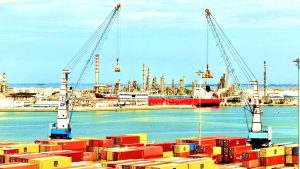
Important Considerations and Legal Requirements in Ship Chartering in the Philippines
When it comes to ship chartering in the Philippines, there are several important considerations and legal requirements that both charterers and shipowners need to be aware of. One of the key considerations is the type of charter agreement that will be entered into. There are various options available, including time charters, voyage charters, and bareboat charters, each with its own unique features and implications.
In addition to selecting the appropriate charter agreement, parties engaging in ship chartering in the Philippines must also take into account certain legal requirements. For instance, all foreign-owned vessels intending to operate within Philippine waters are required to obtain a Certificate of Philippine Registry (COPR) from the Maritime Industry Authority (MARINA). This certificate serves as proof that the vessel is registered under Philippine laws and regulations.
Furthermore, both charterers and shipowners should understand their respective rights and obligations under Philippine maritime law. For example, under the Code of Commerce, a charterer is responsible for paying freight charges unless otherwise stipulated in the contract. Shipowners also have obligations regarding seaworthiness and maintenance of their vessels throughout the duration of the charter period.
By carefully considering these important factors and complying with legal requirements when engaging in ship chartering arrangements in the Philippines, parties can ensure smoother operations while minimizing risks down the line.
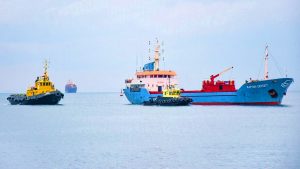
Pros and Cons of Ship Chartering
Ship chartering in the Philippines offers several advantages for businesses and individuals alike. One major benefit is flexibility. By chartering a ship, companies can have complete control over their shipping schedule, allowing them to transport goods at their preferred time and destination. This flexibility is particularly useful for businesses that deal with seasonal products or have fluctuating demand.
Another advantage of ship chartering in the Philippines is its cost-saving potential. For businesses that require frequent shipments, chartering a vessel can be more cost-effective than using traditional shipping methods such as air or sea freight. With a fixed price for the entire trip, regardless of cargo weight or size, companies can often save money by opting for ship chartering.
However, there are also some drawbacks to consider when it comes to ship chartering in the Philippines. One potential downside is the limited availability of vessels during peak seasons. As demand increases, it may be challenging to secure a chartered ship on short notice. Another disadvantage is the responsibility that comes with managing logistics and coordinating all aspects of the shipment. This requires expertise in transportation planning and coordination which may pose challenges for those unfamiliar with the process.
Although there are pros and cons to ship chartering in the Philippines, it remains an appealing option for businesses seeking flexibility and cost savings in their shipping operations.
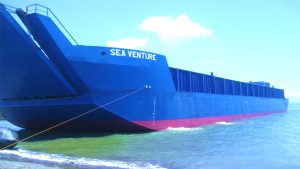
Factors to Consider When Chartering a Ship: Cost, Size, Availability, and Destination
When it comes to chartering a ship in the Philippines, there are several crucial factors to consider. First and foremost is the cost. It’s important to carefully analyze your budget and determine how much you’re willing to spend on chartering a ship. Keep in mind that the cost will vary depending on the size of the vessel, the duration of the charter, and any additional services or amenities required.
The size of the ship is another vital consideration. Are you looking for a small boat for an intimate gathering or a larger vessel that can accommodate a big group? Consider not only the number of passengers but also their comfort during the journey. A cramped space can quickly turn a dream vacation into an uncomfortable experience.
Availability is also key when chartering a ship in the Philippines. Popular destinations tend to have higher demand, particularly during peak seasons, so it’s essential to book well in advance to secure your desired dates and itinerary.
Finally, don’t forget about the destination. The Philippines offers an abundance of stunning locations for exploration by sea – from remote islands with pristine beaches to vibrant coral reefs teeming with marine life. Each destination has its own unique charm and attractions, so be sure to choose one that aligns with your preferences and interests.
While planning your ship chartering in the Philippines, remember these four critical factors: cost, size, availability, and destination.
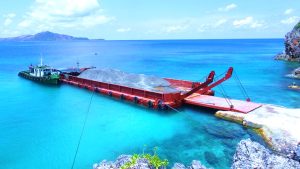
Looking for the Best Ship Chartering Company in the Philippines?
Full Speed Chartering and Shipping Agency, Inc. is undoubtedly the most reliable ship chartering company in the Philippines, providing cost-effective and quality vessel options for various purposes. With a vast fleet of ships and an extensive network of partners, they cater to different industries such as oil and gas, mining, construction, and logistics. What sets them apart from other chartering companies is their commitment to delivering exceptional customer service throughout the entire chartering process.
- Email us: info@fullspeedchartering.com
- Mobile, Viber, WhatsApp: +63 939 3753224
- Facebook Messenger: Click here
- Click here to inquire
One of the key advantages of Full Speed Chartering and Shipping Agency, Inc. is our ability to customize solutions according to specific requirements. Whether it’s transporting heavy equipment or perishable goods, we have a wide range of vessels available that can be modified with specialized features tailored to your needs. We understand that every client has unique demands and strive to provide flexible options that align with those requirements.
Furthermore, Full Speed Chartering and Shipping Agency, Inc. stands out due to its dedication to safety protocols and compliance with industry regulations. Their vessels undergo regular maintenance checks and are equipped with modern navigational systems for seamless operations on both domestic waters and international routes. This focus on reliability ensures that clients can trust Full Speed Chartering and Shipping Agency, Inc. not only for cost-effective solutions but also for maintaining high-quality standards throughout their shipping journeys.
If you are looking for the best ship chartering company in the Philippines that offers cost-effective solutions without compromising on quality or safety, look no further than Full Speed Chartering and Shipping Agency, Inc.
Summary: 4 Types of Ship Chartering in the Philippines
The Philippines has a robust maritime industry, and ship chartering plays a significant role in the country’s transportation sector. There are four primary types of ship chartering in the Philippines, each with its specific purpose and advantages. The first is voyage chartering, which involves hiring a vessel for a single journey from one port to another. This type of chartering is commonly used for transporting bulk commodities or goods that have irregular schedules.
Time chartering, on the other hand, involves hiring a vessel for an extended period, typically several months or years. Unlike voyage chartering, time chartering gives the charterer more control over the ship’s route and schedule. It is often chosen by businesses that require regular shipping services or have ongoing transportation needs.
Bareboat rental is another type of ship chartering in the Philippines where the chartered vessel operates as if it were owned by the renter. In this arrangement, the renter takes on all responsibilities associated with operating the ship, including crew management and maintenance costs. Bareboat rental offers flexibility and allows individuals or companies to use vessels for various purposes, such as private exploration trips or research expeditions.
Lastly, there is contract hire in which operators lease their vessels to serve specific projects such as offshore oil exploration or construction projects. These contracts usually come with additional services like crew provision and maintenance support.
In conclusion, understanding the different types of ship chartering in the Philippines can be beneficial for individuals and businesses alike when seeking efficient transportation solutions.
Dive into a world of maritime exploration with our guide to ship chartering in the Philippines, showcasing the incredible range of 4 different types available. Start charting your course with Full Speed Chartering and Shipping Agency, Inc.

